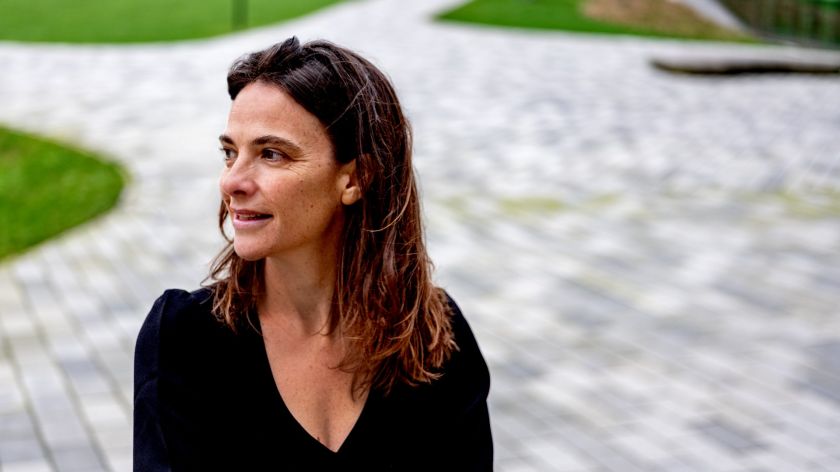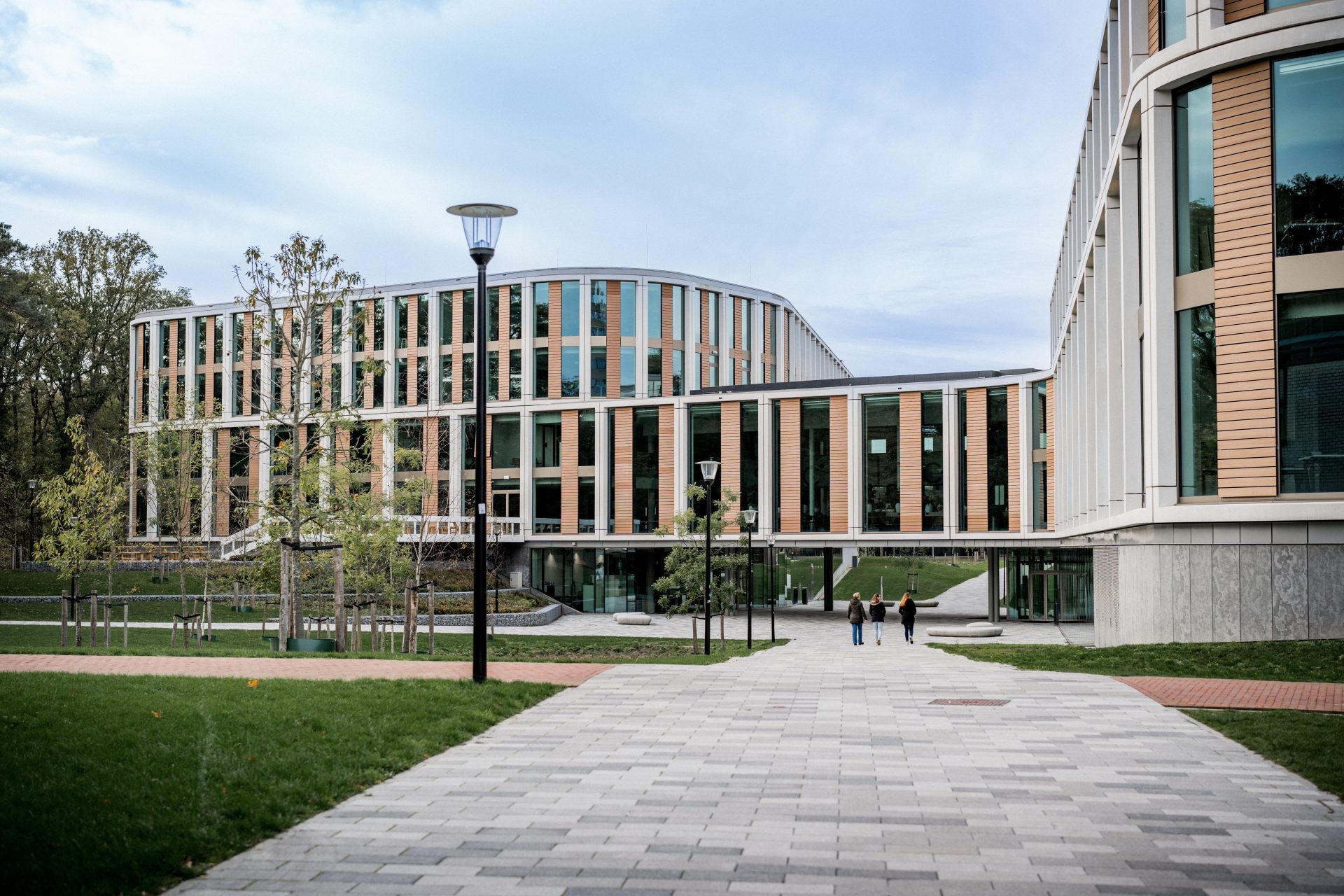New Chair of CAOS: ‘There are a lot of good intentions to make peace with the past’
-
 Sara Kinsbergen. Photo: Duncan de Fey
Sara Kinsbergen. Photo: Duncan de Fey
A neglected organisation with failing leadership; that is how the Berenschot agency described the Cultural Anthropology and Development Sociology department in their investigation last year, which prompted the Faculty Board to apologise to the department. Now, employees are picking up the pieces with Sara Kinsbergen as chair.
At first glance, Cultural Anthropology and Development Sociology (CAOS) was a department like any other for the past fifteen years. ‘Our education efforts went well, and we had some wonderful research programmes’, according to Sara Kinsbergen, professor in the field of citizens’ roles in sustainable development, as well as the chair for the CAOS department, as of last year.
However, below the surface, a lot of things went wrong for the 30-men-strong department, for a long time. This was a known fact both in and outside the department. ‘Things weren’t terrible, but they did have people wondering what was going on’, Kinsbergen admits.
Employees reported to the faculty board on issues of lacking leadership and damaged relations among employees as far back as 2017. Those reports came to naught, as they went unaddressed by the board. It wasn’t until 2022, shortly after Evelyn Kroesbergen’s inauguration as dean, that the faculty board decided to investigate what was happening.
This all came to light in September last year when De Gelderlander obtained a report by the Berenschot investigative agency. The article referred to Radboud University as a “toxic, unsafe work environment for many women.” The newspaper supplied several examples, including CAOS.
Lack of transparency
‘To be clear’, says Kinbergen, who wants to elaborate, six months after the article’s publication. ‘In our case, there was no question of sexually transgressive behaviour, nor was the investigation focused on the behaviour of a single person.’
What was it about then? ‘Leadership and social conventions. How do you address someone’s behaviour in a way that person finds comfortable?’ Additionally, decision-making processes lacked transparency; who got promoted and why, for example. ‘As a consequence, people discussed these things in the hallways, where not everyone felt equally seen.’
‘I started my PhD track in 2008, but I didn’t have my first performance review until 2016’
Kinsbergen, a Flanders native, is intimately familiar with the CAOS department. She started out as a student and went on to climb the academic ladder. As of last year, she is a professor. Kinsbergen states that she has never felt like a victim of a socially unsafe environment. However, she did see some things go wrong. ‘For example, I started my PhD track in 2008, but I didn’t have my first performance review until 2016.’
‘But if you’ve worked somewhere from a young age, you won’t know any better’, Kinsbergen continues. ‘You are taught that this is how things are done and how you are supposed to interact.’ Additionally, Kinsbergen has also worked with the Radboud Centre for Social Sciences for some time. ‘That’s where I saw how things were done outside CAOS; how things could be done differently.’
Change manager
The situation at CAOS remained for a long time, even after the 2017 reports. Kinsbergen: ‘The Faculty Board did not take effective measures.’ Until 2022 that is, when the newly appointed dean for the Faculty of Social Sciences, Evelyn Kroesbergen, hired the Berenschot agency to figure out what was going on at CAOS. The investigators spoke with almost every employee at the department. Among other things, the Faculty Board wanted to know how cooperation within the department got so strained.
The Board presented the results of the investigation in the summer of last year. Because reports from CAOS were not handled effectively by the Faculty Board, Berenschot referred to the department as a “neglected organisation”, for which the current board apologised. ‘That meant a lot’, according to Kinsbergen. ‘And it was nice to get recognition for the situation.’
One of the measures taken was the commencement of a ‘change track’, led by an external ‘change manager’. ‘There are a lot of good intentions to make peace with the past, and to work on the future’, Kinsbergen says. According to the professor, a lot of changes were quickly set into motion, such as more transparent decision-making. Programme director Edwin de Jong and chair Kinsbergen were appointed to lead the department.
Kinsbergen claims that the brittle trust within the department received a hit when it came out that the confidential Berenschot report had been leaked to De Gelderlander. A painful moment, Kinsbergen agrees, but she states that she’s moved on. ‘I respect that someone felt the need to send that report to the newspaper.’
However, that situation marked the starting point for an ‘incredibly complex period’ for the department. ‘We had to do a lot of damage control and have a lot of discussions. I stated in those discussion that I hoped we could still connect with each other.’
A different kind of leader
According to Kinsbergen, CAOS’ past is an example of how people wind up in leadership positions in the world of academia, as well as how people treat each other within the university. ‘You can be a brilliant researcher, but that does not mean you will be a brilliant leader. A university is an environment with strong hierarchical differences and dependency positions, where it can be very hard to get a promotion.’
If leadership falls short in several areas, if there is a lot of dependency, and if a lot of leaders appear similar, that creates an environment where social safety might come under pressure, according to Kinsbergen, an environment where these things are also hard to address.
‘This is the start of a culture change, where everyone can comfortably work and learn together’
The department head hopes to be a different kind of leader. ‘I don’t want to make it seem like I know everything, but I did not become the head of this department just based on my scientific merits. The Faculty Board asked me to fill this position because I can build bridges.’
Kinsbergen, alongside her colleague De Jong, wants to ensure that employees are intrinsically motivated to come to the university. ‘Someone who is good at educating others can spend more time doing so. Someone skilled at valorisation can focus more on that aspect. Additionally, we want to be as transparent as possible about the changes we’re working on.’
Next summer, the official change track at CAOS is set to be finished. ‘We will have established how we want to interact’, Kinsbergen says. By that point, it should also be clear who is responsible for what. ‘Who makes the decisions, and who is involved? This is the start of a culture change, where everyone can comfortably work and learn together.’
Translated by Jasper Pesch




